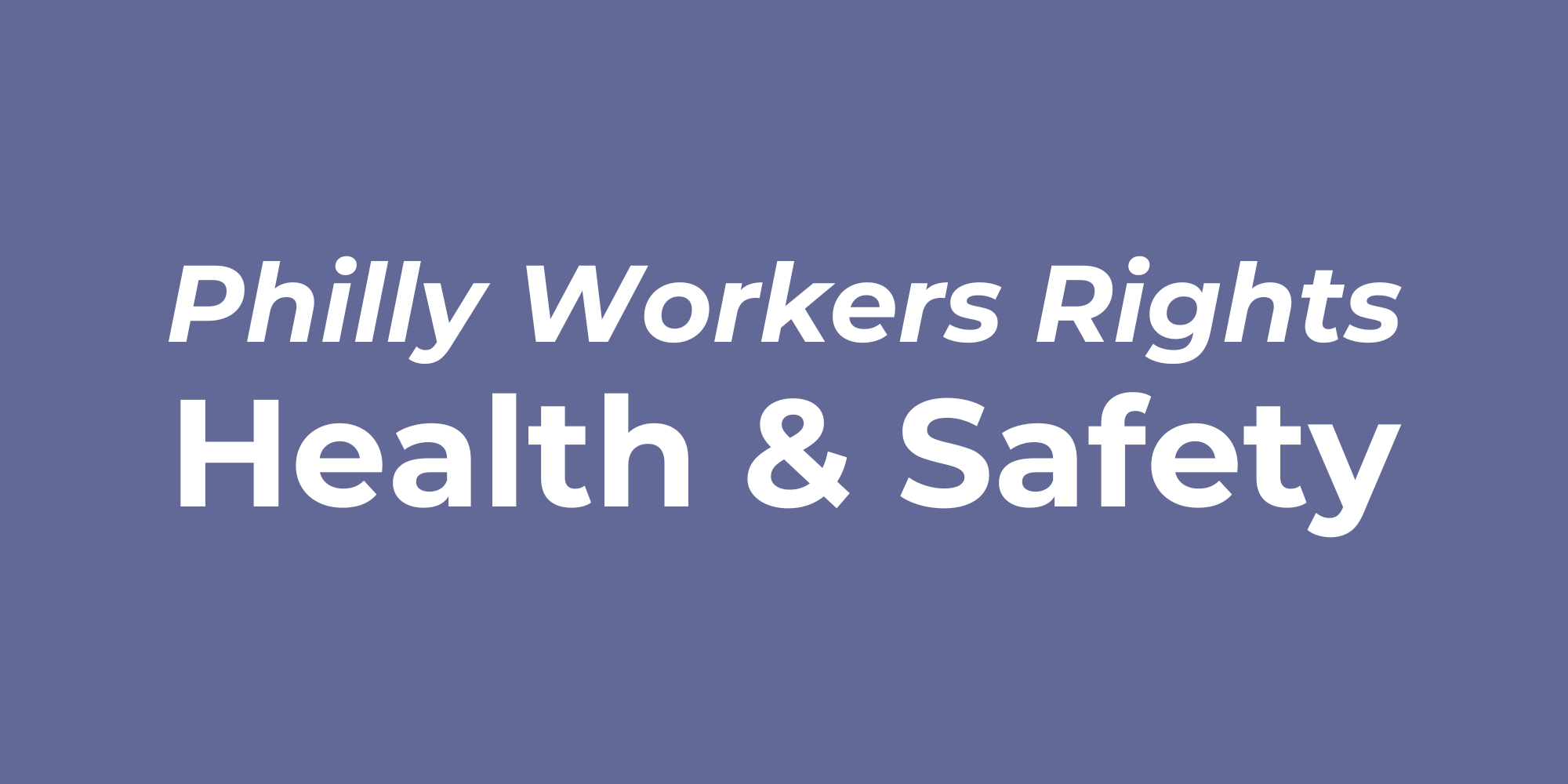All workers have the right to a safe and healthy workplace, especially during the COVID-19 pandemic. CLS assists workers seeking to understand their rights to a safe and healthy workplace, job-protected leave, and how to enforce those rights and protect against retaliation. CLS offers resources, advocacy, and legal guidance to support workers who have concerns about health and safety at work or need time off due to their own health condition, or to care for a family member with a health condition. CLS may be able to assist you by providing information about your rights, evaluating whether you may be eligible for paid or unpaid leave, and discussing your options if your employer has violated your legal rights.
You have the right to a healthy and safe workplace!
- Under U.S. health and safety laws, all workers have the right to a workplace that is safe and free of recognized hazards.
- You have the right to know about any workplace hazards and the right to refuse to do work that might put you in immediate danger.
- If you are concerned about your health or safety at work, you should talk to your co-workers and, together, discuss any concerns with a supervisor or manager.
- If your employer does not address any unsafe or unhealthy conditions, workers have the right to file complaints with the U.S. Occupational Safety and Health Administration (“OSHA”).
- Under the law, your employer cannot discriminate or retaliate against you for reporting safety hazards.
- In Philadelphia, workers who make complaints about workplace safety due to COVID-19 or refuse unsafe working conditions related to COVID-19 are protected against retaliation.
Do you Need to Take Leave from your Job?
- Workers who need time off from work for personal health reasons or to provide care for a family member due to a health condition may be entitled to paid or unpaid job-protected leave.
- The federal Family and Medical Leave Act (“FMLA”) provides certain eligible employees up to 12 weeks of unpaid, job-protected leave for the necessary care of themselves or a family member with a serious health concern, circumstances involving either the birth or care of a newborn or adopted child, and some military reasons. During FMLA leave, workers keep all health benefits and are protected from losing their jobs.
- Generally, in order to be eligible for FLMA leave, you must work for an employer that has at least 50 employees within 75 miles of your work location, and you must have worked for your employer for at least 1 year and have worked for at least 1,250 hours during the year preceding the leave.
- Employees wishing to take FMLA leave must give their employers proper notice beforehand.
- When the FMLA leave ends, employees are entitled to the same or equivalent job position with identical benefits and pay.
- Employers can violate the FMLA by failing to return you to the same or equivalent position, by interfering with your right to take leave, by retaliating against you for taking leave, or by failing to approve leave for alcohol or drug rehabilitation.
Philadelphia Workers Are Entitled to Paid Sick Leave!
- Since 2015, Philadelphia law requires certain employers to provide paid or unpaid leave to their employees.
- Employers with 10 or more employees must provide up to 40 hours of paid sick leave per year. Employers with fewer than 10 employees must provide up to 40 hours of unpaid leave per year.
- Philadelphia sick leave can be used for your own sickness or to care for a family member (including to attend medical appointments), and for additional reasons related to the COVID-19 pandemic.
- Philadelphia workers can also take time off from work for reasons related to domestic violence or sexual assault, including attending court.






